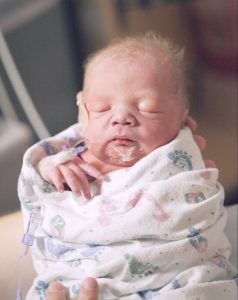
© unsplash.com
Researchers explored the knowledge needs and skills acquisition of parents during their baby’s neonatal intensive care stay in California, USA. The study revealed differences in the learning needs and skills acquisition depending on the parents’ age and characteristics of the newborn. Moreover, the infant’s medical course and questions about feeding were the main topics of parental interest.
Having a preterm baby in the neonatal intensive care unit (NICU) is challenging for the family. During the infants NICU stay, parent education can be provided in diverse ways, but surprisingly, it remains suboptimal. Lack of research about the specific knowledge and skills need of parents throughout their infant’s NICU stay, motivated a group of researchers to conduct a longitudinal descriptive study. The aim of the study was furthermore to explore relationships between the parents’ knowledge motivation and parent and infant characteristics.
In order to explore the topic, different approaches were combined. First, nurses assessed parental knowledge and skills, and educated parents individually, depending on their needs. Second, using two weekly surveys administered through a mobile app, the researchers analysed the acquired knowledge and skills of 227 parents in NICUs across California.
The median length of the participants’ infant’s hospitalisation was 65 days. More than half of the parents requested to learn about their child’s medical course, with questions regarding feeding, particularly concerning breastfeeding. Regarding the infant’s diagnoses, respiratory diagnoses accounted for nearly half of these learning requests. Clinical parenting care, together with typical parenting care, were further interesting topics for parents.
Regarding the content, learning needs varied over the course of the infant’s NICU stay. Questions about the infant’s medical course were most important in the beginning; questions about feeding issues were more relevant in the second-third of hospitalisation. In the final period of hospitalisation, the parents’ focus shifted to interpreting their infant’s symptoms and managing medical care at home. Skills related to infant feeding were the most commonly acquired by parents, and were also noted as the most useful ones.
Differences in learning requests based on parent and infant characteristics could be associated with the parents’ age. For example, older parents wanted to know more about infant feeding and less about the medical course than younger parents. Younger parents, however, emphasised the learning of more skills per week.
Finally, accurate information is a priority for parents during an infant’s NICU hospitalisation. However, the unmet knowledge needs prior to and after discharge need to be addressed. At the same time, parent knowledge and skills trajectories need to be better understood. By developing skills and acquiring knowledge, parents will achieve the necessary involvement in their baby’s caregiving and enhance conscious and informed decision-making for themselves and their children.
Paper available at: Patient Education and Counseling
Full list of authors: Stephannie L.Furtak, Caryl L.Gay, Rebecca M.Kriz, Robin Bisgaard, Scott C.Bolick, Brittany Lothe, Diana M.Cormier, Priscilla Joe, Juliet K.Sasinski, Jae H.Kim, Carol K.Lin, YaoSun, Linda S.Franck
DIO: doi.org/10.1016/j.pec.2021.04.011

